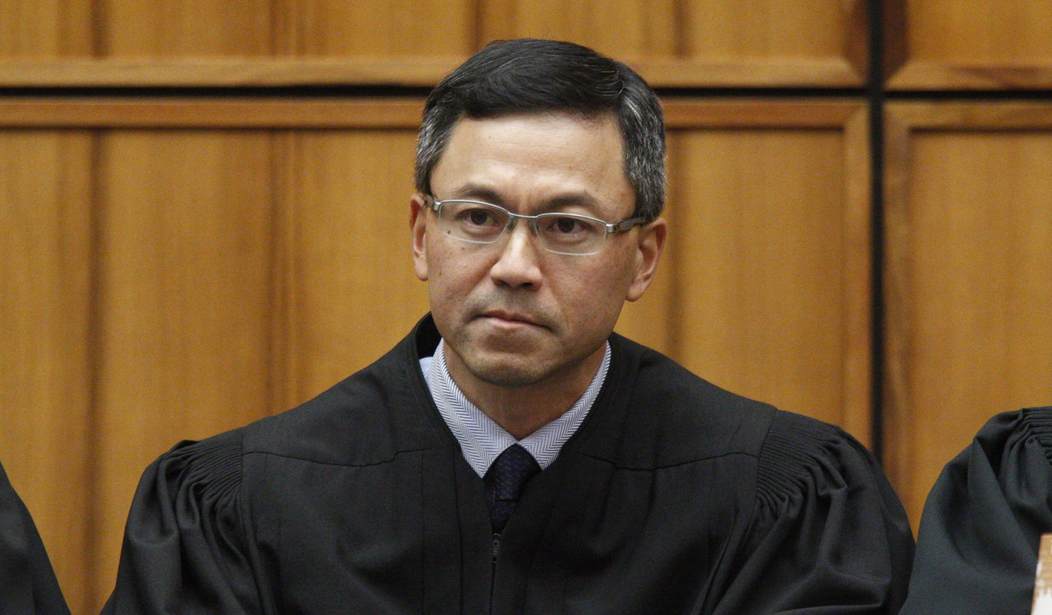Here we go again. Last month it was Seattle District Judge James L. Robart who decided he had the authority to contravene the president’s executive order “on a nationwide basis,” temporarily banning entry into the United States of people from seven terrorist hot spots (Somalia, Yemen, Iraq, Iran, Libya, etc.). Come on in folks, don’t mind the laws of the United States! All are welcome.
Judge Robart, whom no one had ever heard of before, got a lot of play in the anti-Trump media (which is to say, the media tout court) and has doubtless been dining out on that sever since.
As I said at the time, Judge Robart’s restraining order, especially its nationwide application, struck me as legally dubious and, practically speaking, unworkable. Can we really have six or seven hundred district judges making policy for the entire country? For make no mistake, that’s what Judge Robart did. At the behest — or with the collusion — of a couple of blue state attorneys general, Judge Robart decided that he had the authority to contravene a legally framed executive order issued by the president of the United States and to make himself, Judge James L. Robart, the supreme law of the land.
Since he happened to reflect the establishment anti-Trump consensus, it was all a big hit with the establishment anti-Trump media. So it is no surprise that in the wake of the president’s new travel ban, another grandstanding judge — several of them, in fact — is eager to horn in on the publicity. Yesterday, U.S. District Judge Derrick Watson from Hawaii made a bid for his fifteen minutes of notoriety and blocked the travel ban just hours before it was set to take effect. According to Judge Watson, the travel ban was not about national security, as the president said, but “significant and unrebutted evidence of religious animus.”
I’d say that was ridiculous on the face of it. If Donald Trump wanted to institute a travel ban against Muslims, why would he neglect to include countries in which more than 85 percent of Muslims live? No, the ban has to do with national security, not religion. But leave that to one side. The real issue is: Who asked Judge Watson? As Andrew McCarthy has explained with his usual perspicacity when Judge Robart weighed in on the first travel ban, the president has plenary power to decide who may and who may not travel to the United States.
McCarthy cites federal immigration law Section 1182(f):
Whenever the President finds that the entry of any aliens or of any class of aliens into the United States would be detrimental to the interests of the United States, he may by proclamation, and for such period as he shall deem necessary, suspend the entry of all aliens or any class of aliens as immigrants or nonimmigrants, or impose on the entry of aliens any restrictions he may deem to be appropriate (emphasis added).
In other words, Donald Trump’s travel bans were perfectly legal.
But legality is not the issue. Political warfare is the name of the game. Judge Watson, joined by a handful of his anti-Trump confrères and the vast majority of the media elite, has decided that the judiciary, not the executive branch, is in charge of international relations and foreign affairs. (In fact, they believe that the judiciary, so long as it hews to a progressive agenda, is in charge of everything, but that is an issue for another day.)
Now the Ninth Circuit, which has jurisdiction over the case, is famously latitudinarian. It sided with Judge Robart in his original TRO last month. But things may be different this time around. Yesterday, five judges said they considered that decision incorrect. “Whatever we, as individuals, may feel about the president or the executive order,” Judge Jay Bybee of the Ninth Circuit wrote, “the president’s decision was well within the powers of the presidency.”
For his part, Donald Trump blasted the “unprecedented judicial overreach” of Judge Watson. What’s next? The president has vowed to fight the case all the way to the Supreme Court. Absent a ninth member of that Court, the decision is likely to be split 4-4, thus affirming the lower Court’s decision. So in part this story might be called “Waiting for Gorsuch.”
But I suspect the left-leaning judicial supremacists may have pulled off a scab from a wound that now will fester. There are various expedients that could be pursued. There is nothing in the Constitution that says the U.S. has to maintain a District Court system at all. A Supreme Court, yes. There it is in Article 3. But Judge Robart’s or Judge Watson’s perch? Tell me where the Constitution specifies that. Nor does the Constitution say anything about judicial compensation; perhaps it should be zero. [UPDATE: As an alert reader notes below, this is wrong: Article III does say that Judges shall receive compensation for services rendered, “which shall not be diminished during their Continuance in Office.” But it does not say that Congress has to establish a certain number or indeed any district court judges. Still, my correspondent, like the “waterfly” Osric in Hamlet, may say “a hit, a very palpable hit.”] Who knows what the ingenuity of man might discover?
In any event, what I see brewing is a Constitutional confrontation, if not, indeed, a Constitutional crisis. It’s too early to say exactly how Donald Trump will react. But you can be sure he is not going to let this one go.









Join the conversation as a VIP Member